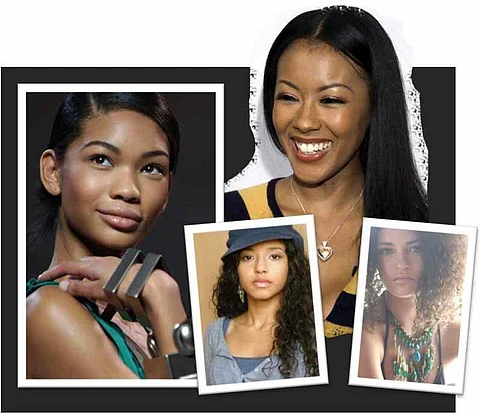
- Home
- न्यूजग्राम
- NewsGram USA
- India
- World
- Politics
- Entertainment
- Culture
- Lifestyle
- Economy
- Sports
- Sp. Coverage
- Misc.
- NewsGram Exclusive
- Jobs / Internships

by Shubhi Mangla
Introduction
Douglas (Doglas) are basically the people of mixed ancestry of Indians and Africans. In the secondary sense, Douglas, carries the meaning of an impure blood and calls the person an illegitimate child. The term originated from the Bhojpuri or Hindi word "Doogala". According to Ferne Louanne Regis of The University of West Indies, Trinidad and Tobago, in her paper presented at The Asian Conference on Arts & Humanities 2013: "The word Dougla is linked to dogla which is of Indic origin and is defined by Platts (1884, p.534) as a person of impure breed, a hybrid, a mongrel; a two-faced or deceitful person and a hypocrite."
In Martinique, people of mixed Indian and African descent are called chappè (escaped) or èchappè(escaped). Its literal meaning is a person who escaped from being a pure Indian. In Guadeloupe, these people are termed as batta coolie or batta-zendeyn, wherein batta means "bastard" but intends to give a sense of mixed rather than a negative meaning.
The people who are called 'Dougla' do not always look similar. They do have some differences in their features. Dougla people mostly have thick black wavy hair and a rich brown skin with a slight undertone.
From You Tube
History
Guyana
Guyana has the largest population of Douglas. Half of the population in Guyana comprises of Indo-Guyanese and Afro-Guyanese. The doula population in Guyana rose in the post-independence period due to urbanization, socialization, Inter-ethnic marriages, occupations and inter-religious activities. Most of the douglas are youngsters, particularly below 40 years of age. Presently, Douglas comprise of 17% of Guyanese population. Douglas are now starting to put forward their heritage.
Trinidad
The term Douglas is used by Indian-Trinidadians and African-Trinidadians. Black and Indian tend are used to observe the purity standards. Douglas get to choose their own identity. If they look like afro-Trinidadians, they choose black and choose Indian if they look more like Indo-Trinidadians. It is known that the Indo-Trinidadians are more religious, ethnic and rigid to its culture and tend to mix less with other communities as compared to Afro-Trinidadians. In Trinidad, Douglas can also alienate themselves from both the groups and claim them simply as Trinidadian. Hence, gaining national or ethnic identity.
Conclusion
Dr. Elizabeth Rosabelle Sieusarran, a professor at the University of the West Indies School of Continuing Education, delivered a speech at the official launch of the Indian Arrival Day Heritage Village set up by the El Dorado Shiv Mandir. She said that it is up to East Indians in Trinidad to decide whether want to accept douglas, mixed-race people of Indian and African descent, or outcast them from their community. She said, "In our quest for establishing unity among our people it is imperative for us to note a rapidly increasing phenomenon from the rise of a western system of education and the consequential westernization of the Indian community. This has resulted in the prevalence of inter-caste, inter-religious and inter-racial marriages. The Indian community has to decide how to handle the offspring of this significant group locally referred to as douglas. Do we accept them or ostracize them? Whatever course is adopted, the fragmentation of the Indian community must be avoided. Above all, we must always remember that Trinidad and Tobago is our patrimony. Our ancestors gave their blood and we have labored to enrich our country. We live in a multi-cultural society and co-existence is a necessary ingredient for our success in the future".
Shubhi is a student of Journalism and Mass Communication in New Delhi, India. She is currently working as an intern in Newsgram. Twitter @shubhi_mangla
References
